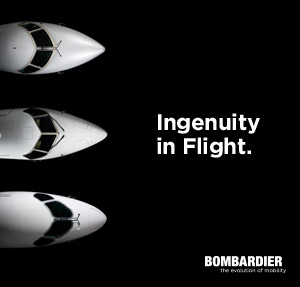GOL Anuncia Novo Diretor Vice-Presidente Financeiro e de Relações com Investidores
February 2, 2009
São Paulo, 02 de fevereiro de 2009 – A GOL Linhas Aéreas
Inteligentes S.A. (Bovespa: GOLL4 e NYSE: GOL), a companhia aérea
brasileira de baixo custo, anuncia Leonardo Pereira como Diretor
Vice-Presidente Financeiro e de Relações com Investidores. Pereira
assumirá o cargo anteriormente ocupado por Richard Lark. A
Vice-Presidência Financeira abrange as áreas de Finanças, Relações
com Investidores, Contabilidade e Impostos, Planejamento Financeiro e
Orçamento. No dia 04 de fevereiro de 2009, será realizada reunião
para aprovar a indicação de Pereira ao cargo.
Antes de ingressar na GOL, Pereira trabalhou por dois anos como
Diretor-Presidente da Companhia do Vale do Araguaia, do ramo de
florestas, e por seis anos como Diretor-Executivo Financeiro e de
Relações com Investidores da NET Serviços, empresa líder de serviços
via cabo na América Latina e listada na BOVESPA (Nível II), na NASDAQ
e no Latibex. Previamente, foi por cinco anos Diretor de Planejamento
na Globopar, holding de empresas do setor de mídia, e esteve no
Citibank por 13 anos em várias funções no Banco de Finanças
Corporativas no Brasil, na Ásia, na América Latina e nos Estados
Unidos, incluindo a liderança da área de Aviação para a América
Latina. É membro do Comitê de Governança Corporativa da American
Chamber em São Paulo e membro do Conselho de Administração da M. Dias
Branco, empresa líder no setor de massas e biscoitos, e integrante do
Novo Mercado da Bovespa.
Los Angeles International Airport Is Home to Nation’s First Independent Cargo Screening Facility
February 2, 2009
Mercury Air Cargo Will Provide On-Airport TSA-Certified Cargo Screening
LOS ANGELES, CA–(Marketwire – February 2, 2009) – Los Angeles World Airports (LAWA) announced today that Mercury Air Cargo, a tenant at Los Angeles International Airport (LAX), has secured certification from the Transportation Security Administration (TSA) to be the nation’s first Independent Cargo Screening Facility (ICSF) under new TSA air cargo screening guidelines that took effect yesterday, February 1, 2009.
Requirements for screening air cargo carried on wide-body jets has been dramatically strengthened under the Implementing the 9/11 Commission Recommendations Act of 2007, which requires the air cargo industry to screen 50 percent of cargo on wide-body passenger aircraft at a level commensurate with passenger checked baggage by February 1, 2009, and 100 percent screening by August 1, 2010.
“Screening air cargo has been a gaping hole in aviation security for decades,” said U.S. Congresswoman Jane Harman (D-CA 36th District), chair of the Homeland Security Subcommittee on Intelligence & Terrorism Risk Assessment. “I congratulate Mercury Air Cargo and TSA for their efforts to improve the safety of countless passengers who fly into and out of LAX. It’s exactly this kind of public-private partnership that we need to leverage in order to keep Americans safe. U.S. transportation systems remain an attractive terrorist target, but these new protections greatly reduce the odds of an attack.”
Mercury Air Cargo participated in TSA’s voluntary Certified Cargo Screening Program (CCSP) to certify its 200,000-square-foot, on-airport air cargo handling facility on Avion Drive as an ICSF. Mercury has secured screening equipment as well as trained personnel under the TSA’s new guidelines. By utilizing its on-airport facility, Mercury will be able to accept unscreened cargo from freight forwarders street side, screen it in a secured environment, and then transport it anywhere on the airport, keeping all operations within the airport’s security perimeter.
“As one of the world’s busiest cargo airports, LAX needs to be ready to meet these new regulations now and by 2010, when 100 percent of cargo on passenger jets must be screened on the piece level,” said LAWA Executive Director Gina Marie Lindsey. “Mercury Air Cargo has given airlines at LAX a leg-up in meeting the new TSA air cargo screening requirements.”
LAX is the nation’s busiest origin and destination airport and ranks eleventh worldwide in tonnage of air cargo handled. Last year, the airport handled 1.8 million tons of arriving and departing freight and mail, nearly 75 percent of the air cargo volume in the five-county Southern California region. Of this total, 310,137 tons (or 17 percent) were loaded onto departing passenger flights.
“Mercury is the longest, continually operating tenant at LAX and with that comes a special understanding of the needs of this airport community and where we can be of service,” said Joseph A. Czyzyk, chairman and chief executive officer of Mercury Air Group, Inc., the parent company of Mercury Air Cargo, Inc. “By becoming an integrated cargo screening facility, we see a real opportunity to help facilitate cargo screening and especially help out the small- and medium-sized forwarders, who may not be able to afford the costs associated with doing their own in-house screening and/or have the desire to keep up with all of the TSA requirements.”
TSA has focused its rollout of the CCSP program on 18 major gateway airport markets in the U.S., including LAX, and is looking to implement a supply-chain-wide solution for meeting the new requirements.
“ICSFs play an important part in helping small- and medium-sized Indirect Air Carriers meet the new requirements. We are pleased that Mercury Air Cargo agreed to participate in the Certified Cargo Screening Program and that they are the first ICSF in the U.S.,” said TSA’s Air Cargo Division General Manager Ed Kelly.
NASA and Google Launch Virtual Exploration of Mars
February 2, 2009
| NASA Logo. (PRNewsFoto/NASA) WASHINGTON, DC UNITED STATES |
�
Besides providing a rich, immersive 3D view of Mars that will aid public understanding of Mars science, the new mode, Google Mars 3D, also gives researchers a platform for sharing data similar to what Google Earth provides for Earth scientists.
The mode enables users to fly virtually through enormous canyons and scale huge mountains on Mars that are much larger than any found on Earth. Users also can explore the Red Planet through the eyes of the Mars rovers and other Mars missions, providing a unique perspective of the entire planet.
Users can see some of the latest satellite imagery from NASA’s Mars Reconnaissance Orbiter and other probes orbiting the Red Planet. Viewers can learn about new discoveries and explore indexes of available Mars imagery. The new Mars mode also allows users to add their own 3D content to the Mars map to share with the world.
Today’s announcement is the latest benefit from a Space Act Agreement of NASA’s Ames Research Center in Moffett Field, Calif., signed with Google in
NASA Ames, along with its partners at Google,
Google’s innovative search technologies connect millions of people around the world with information every day. Google is headquartered close to Ames in Silicon Valley with offices throughout the Americas,
US Coast Guard Selects Becker Avionics’ SAR MAN-PACK for Ground SAR Operations
February 2, 2009
The US Coast Guard has deployed
About Becker Avionics
Becker Avionics is a privately held high-tech company that develops, manufactures and distributes the latest communications, navigation, surveillance and search & rescue equipment for airborne, maritime and ground applications.
Becker Avionics has a longstanding history of over 50 years in providing equipment to General and Corporate Aviation, ATC, law enforcement and military organizations around the world. In order to support the international market requirements the Company has established branches around the world. Becker Avionics supports an extensive customer base, such as, but not limited to Eurocopter, EADS, Airbus, British Aerospace, ATR, CASA, Dornier-Fairchild, Xian Aircraft Corporation, Agusta, Pilatus, German Air Force, Navy and Army, German Border Patrol,
Air Transport Association Applauds Biofuel Funding Announcement
February 2, 2009
This announcement is the first step in implementing provisions found in the 2008 Farm Bill that provide grants for commercial-scale biofuel demonstration projects, including those that could ultimately produce clean, homegrown, renewable jet fuel. This program will work in conjunction with other provisions in the Farm Bill that were implemented earlier this year to provide loan guarantees for construction of commercial-scale alternative fuels production facilities.
“We are thrilled that the Obama administration has worked quickly to secure this funding for alternative energy,” said ATA President and CEO
ATA airline members and their affiliates transport more than 90 percent of all U.S. airline passenger and cargo traffic. For additional information about the industry, visit www.airlines.org.
Legendary Aviation Inventor Si Robin Honored for Revolutionizing Global Avionics Industry
February 2, 2009
With many inventions and patents, 81-year-old Robin joins the ranks of aviation innovators, record breakers and celebrities such as U.S. astronauts
“Being inducted in the Living Legends of Aviation is a personal honor, as well as a tribute to the nearly 300 employees who have provided us with remarkable moments of innovation and invention,” said Robin, CEO and executive vice president of Sensor Systems, Inc. “This award is a celebration of those in the aviation and aerospace industries who have had the courage, passion and determination to dream the possibility and create the reality.”
Sensor Systems, Inc. offers more than 250 products and manufactures over 1,100 antennas per day from its factory in
Sensor Systems, Inc.’s customers include Airbus, Cessna, Boeing, General Atomics Aeronautical Systems,
Sensor Systems, Inc. maintains the industry’s most technologically advanced design, engineering, manufacturing and test facilities. The company’s unrivaled reputation for high quality, reliability and efficiency in the aircraft industry has made it the largest supplier of original equipment manufacturer antennas to airlines throughout the world.
Robin, an instrument multi-engine private pilot with seaplane rating, owns several vintage aircraft and still flies his J-3 Cub and Beechcraft Staggerwing. He also competes in vintage automobile racing and is the Sports Car Champion of 2002 and 2004.
Sensor Systems, Inc. is privately owned by Robin and his wife, Betty.
First Pusher Prop Ground Runs Conducted Successfully for Sikorsky’s X2 TECHNOLOGY(TM) Demonstrator
February 2, 2009
| Sikorsky Logo. (PRNewsFoto/SIKORSKY AIRCRAFT) STRATFORD, CT UNITED STATES |
�
The test conducted
“The high-speed pusher prop produced the expected amount of thrust and the testing went according to plan,” said
Sikorsky Vice President of Research & Engineering
“We are looking forward to completing the remainder of the envelope expansion phases, and achieving 250 knots at the completion of Phase IV by the end of the year,” Miller said.
The X2 TECHNOLOGY demonstrator combines an integrated suite of technologies intended to advance the state-of-the-art, counter-rotating coaxial rotor helicopter. It is designed to demonstrate a helicopter can cruise comfortably at 250 knots, while retaining such desirable helicopter attributes as excellent low speed handling, efficient hovering and autorotation safety, and a seamless and simple transition to high speed.
Among the innovative technologies the X2 TECHNOLOGY demonstrator employs are:
- Fly-by-wire flight controls
- Counter-rotating rigid rotor blades
- Hub drag reduction
- Active vibration control
- Integrated auxiliary propulsion system
Sikorsky Aircraft announced its initiative to develop an integrated suite of technologies called X2 TECHNOLOGY in
Sikorsky Aircraft Corp., based in
Evergreen International Airlines Selects Pratt & Whitney for Long-Term Service Agreement
February 2, 2009
“Pratt & Whitney is a reliable provider of high-quality maintenance and support services,” said
“We are proud to provide value by maintaining and servicing Evergreen’s fleet of PW4000, JT9D and CF6 engines,” said
Evergreen International Airlines has been providing global passenger and cargo air services for more than 40 years. Evergreen uses worldwide operating authority and a network of global offices and affiliations to handle customer requirements.
Pratt & Whitney Global Service Partners (GSP) is a total service provider for engines made by Pratt & Whitney. In addition to engine overhaul and repair services, GSP provides customers with improved engine performance and increased asset value through a portfolio of services that include line maintenance, engine monitoring and diagnostics, environmentally friendly EcoPower(R) on-wing water washes, leased engines, custom engine service programs, and new and repaired parts.
Wide Area Augmentation System Now Available for Learjet 40 XR and Learjet 45 XR Aircraft
February 2, 2009
Montreal, February 2, 2009 — Bombardier Aerospace announced today that it is now offering a
Wide Area Augmentation System (WAAS) capable Flight Management System (FMS) on
Learjet 40 XR and Learjet 45 XR aircraft. The new system is available as a Supplemental Type
Certificate (STC) for in-service Learjet 40, Learjet 40 XR, Learjet 45 and Learjet 45 XR aircraft
customers and will also be offered as an option on new aircraft.
Provided by Universal Avionics Systems Corporation (UASC), WAAS enhances navigation
capabilities through the use of a network of ground reference stations collecting global
positioning system (GPS) satellite data. This data is broadcast to user aircraft through two or
more geostationary satellite communication links. The aircraft uses the WAAS signal, in addition
to the GPS service to fly area navigation and localize performance with vertical guidance (LPV)
instrument approaches. LPV approaches offer pilots lower landing minimums, resulting in more
flexibility for landing decisions.
The WAAS system is managed by various representatives from the Federal Aviation
Administration (FAA) and the aerospace industry. The FAA recently announced that a total of
1,390 new WAAS approach locations are available and capable of allowing Learjet operators to
utilize this system. Currently it is only available for North America.
WAAS can be installed at all Bombardier Aerospace Service Center locations. Operators should
contact their Bombardier regional manager for additional details.
Learjet 40 XR: The six-to-seven passenger Learjet 40 XR aircraft features the widest and most
spacious cabin in its class and a full aft lavatory. This premium light jet delivers impressive
time-to-climb performance under all conditions – particularly in hot and high operating
environments – requiring only 23 minutes to reach 43,000 feet (13,106 m)*.
Cessna Delivers Citation X to MJets in Thailand
February 2, 2009
WICHITA, Kan., Feb. 2, 2009 Cessna Aircraft Company, a Textron Inc. (NYSE: TXT) company, announced today it has delivered a Citation X to Bangkok-based MJets Limited, a leader in business aviation across Southeast Asia. The Citation X joins a Citation CJ3 already in the MJets fleet and it is the second Citation X operating in Thailand.
The MJets Citation X is the first to be specifically available for charter in the country. Passengers will be able to fly non-stop from Bangkok to Beijing, Tokyo, Delhi or Dubai. The Citation X is the world’s fastest civilian aircraft and saves passengers significant time compared to scheduled airlines and other business jets.
“MJets is delighted to welcome the Citation X into its charter fleet and confident that passengers will appreciate the aircraft’s outstanding combination of cabin comfort, range and unbeatable speed. The Citation CJ3 has been a great success at MJets and there is no doubt that the Citation X will be another winner for the company,” said William Heinecke, Principal of MJets and Chairman of The Minor Group.
The Citation X is the world’s fastest civilian aircraft with a top cruising speed of 525 knots / 972 km/hr (Mach 0.92). Maximum cruising altitude is 51,000 feet / 15,545 m. Range is more than 3,070 nautical miles / 5,686 km, ideal for super fast non-stop travel around Asia. More than 300 Citation Xs are in service worldwide, with the aircraft speed capability making it a favorite with business and government leaders who place a premium on time efficiency.
<







